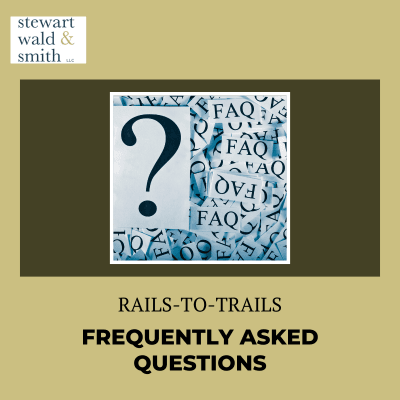Frequently Asked Questions
What is Rails-to-Trails Litigation? Learn more here.
-
I like recreational trails. Will this negatively impact the trail?
No. Our case is not adverse to the trail or the trail operator in any way, shape, or form. Our cases are completely neutral towards the trail and trail operator, and will not change anything on the ground. Our only adversary is the federal government. Our case is simply saying that if the government is going to authorize the land in the former railroad corridor to be turned into a public park/trail, then the public should have to pay for it and compensate the landowners on whose land the park/trail is being placed. The only two outcomes of the case are that a landowner will receive compensation or not.
-
I do not want a recreational trail next to my property. Can you help me stop the trail?
No. Our case is not adverse to the trail or trail operator. We could not stop the trail even if we wanted to because there is clear United States Supreme Court caselaw upholding the Trails Act and allowing trails to be placed over abandoned railroad corridors.
-
How much will I get paid?
Damages will depend on the quantity and quality of land that was taken from you. The quantity is usually calculated by determining how much of your land is next to the former railroad corridor and how many feet go from the edge of your current parcel to the centerline of the railroad corridor. The result is the square footage of land that was taken. The next step is that professional appraisers provide opinions about how much the land is worth per square foot, which depends upon the sales price of comparable land of the same type in your area. Multiplying the square footage of land taken by price per square foot provides the basic amount of property damages. Additionally, appraisers determine whether the presence of a recreational trail damages the remainder of your land. Finally, the government must pay interest on the amount it owes, from the day it took the land until the day it pays you.
-
What will this cost me to have you work on my case?
Our contracts ensure that you have no risk of ever having to pay us any money unless we recover money for you. If we recover nothing, you pay us nothing. If we recover nothing, you do not even owe us for the expenses we incurred. If we do recover money for you, our contracts allow us to get a percentage of your recovery or our hourly rate, whichever is higher (important to note - those hourly rates are actually paid by the government). Even when we recover money for you, the government pays our expenses – so, you never pay our expenses no matter the outcome (for example, the cost of hiring appraisers).
-
How long does the process take?
It is difficult to say because it depends on many factors, but the normal life-cycle of a case can be 3-5 years, although some have been quicker and some have taken longer.
-
Can I obtain compensation without filing a suit?
No. You must bring an action in the appropriate court to obtain compensation. The government does not automatically admit it took the land, and so will not contact you to make an offer.
-
What happens if I do not bring a claim?
If you do not make a claim for compensation, you will not be paid compensation. The government will not voluntarily pay you for the land that was taken for the rail-trail conversion.
-
Is this a class action?
No. This is not a class action case. Rather, it is a collective group of individual actions.
-
Where are these cases brought?
Cases are usually brought in a special court in Washington, D.C. called the United States Court of Federal Claims. All of our attorneys are licensed to practice in that court.
-
What happens if I sell my property before the lawsuit is completed?
If you are the owner of the property on the date the conversion is authorized, then the claim stays with you. It does not transfer to your successor, nor can you assign your claim to another.
-
There is a road between my land and the railroad right of way, how can I have a claim?
This does not mean that you do not have a claim. What is often the case is that an analysis of the title history reveals that your property rights extend under the road and into the railroad right of way.

Did you receive our mailer, or have any questions for us? We’re here to help you take the next step for just compensation.
Notable Success Examples
-
In Haggart v. United States, our attorneys recovered $177,400,000 on behalf of 254 landowners in King County, Washington, along a 25.45-mile trail.
-
In Raulerson v. United States, our attorneys recovered $33,300,000 on behalf of 264 landowners in Beaufort County, South Carolina, along a 25.05-mile trail.
-
In Smith v. United States, our attorneys recovered $26,477,000 on behalf of 29 landowners in King County, Washington, along a 25.45-mile trail.
-
In Ansley Walk v. United States, our attorneys recovered $18,416,000 on behalf of 5 landowners in Fulton County, Georgia, along a 1-mile trail.
-
In Furlong v. United States, our attorneys recovered $14,200,000 on behalf of 272 landowners in Albany, New York, along a 10.94-mile trail.

